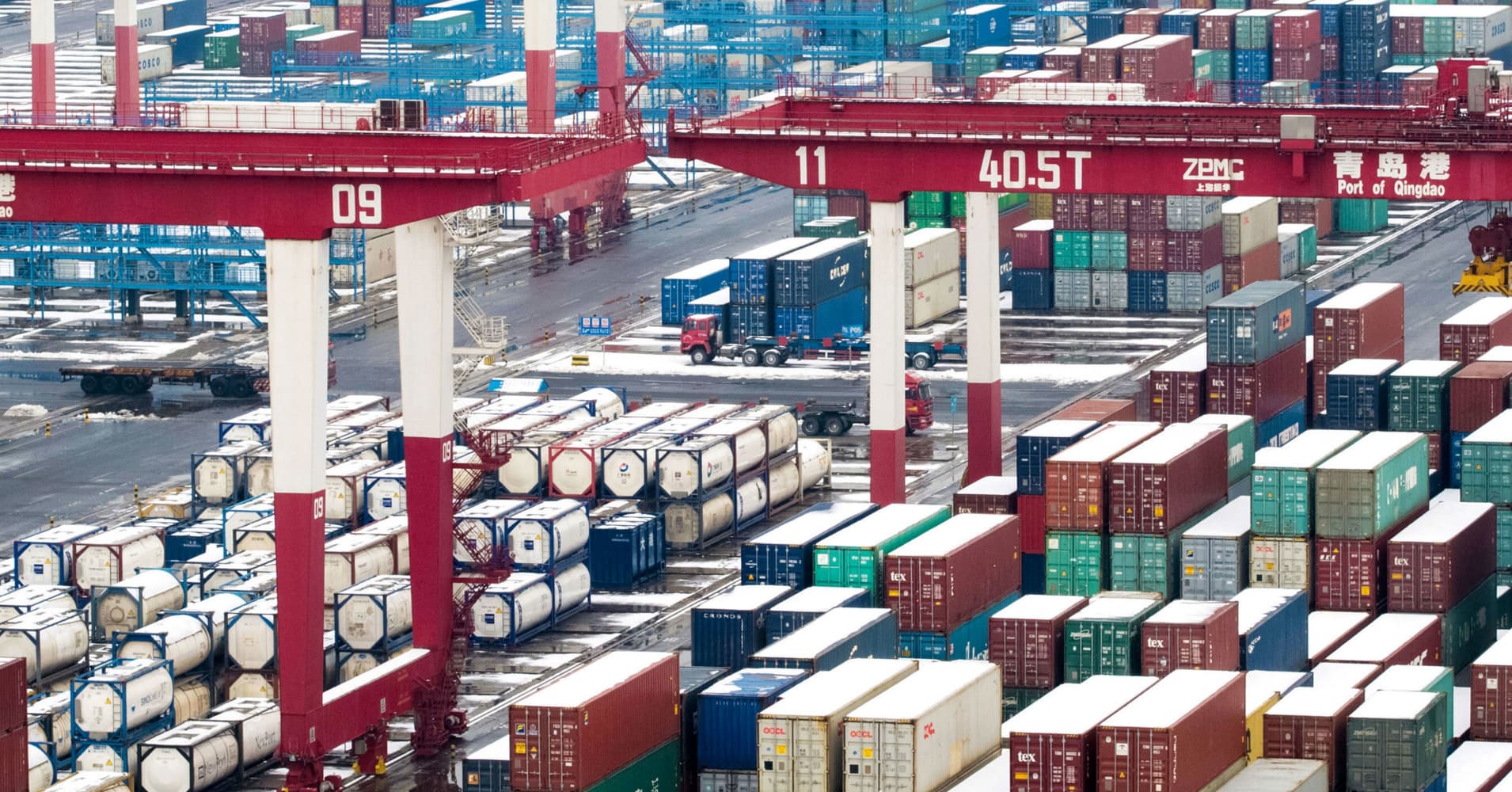The U.S. and China appear to be close to ending a tariff fight that hurt financial markets and dented economic activity worldwide, but that's not going to stop the slowdown already seen in the global economy, experts said on Monday.
U.S. President Donald Trump said on Twitter on Sunday that he would delay an increase in tariffs on Chinese goods that was initially planned for early-March. Washington and Beijing were locked in a tariff fight for months last year, but that battle was put on hold — for an initial 90 days — after Trump met Chinese President Xi Jinping in Argentina in December.
The American president also said he would meet Xi at his golf club in Mar-a-Lago, Florida, "to conclude an agreement" if "both sides make additional progress." Trump didn't announce a timeline for that meeting, but CNBC reported last week that the two countries were discussing holding a late-March summit.
Trump on Twitter: I am pleased to report that the U.S. has made substantial progress in our trade talks with China on important structural issues including intellectual property protection, technology transfer, agriculture, services, currency, and many other issues. As a result of these very......
Trump on Twitter: ....productive talks, I will be delaying the U.S. increase in tariffs now scheduled for March 1. Assuming both sides make additional progress, we will be planning a Summit for President Xi and myself, at Mar-a-Lago, to conclude an agreement. A very good weekend for U.S. & China!
Asian markets on Monday reacted positively to Trump's announcement, but several experts pointed out that an easing in tensions between the two economic giants won't stop a global slowdown that's already happening.
"I think we need to take a little bit of a step back and take a look at the economic cycle," Paul Kitney, chief equity strategist at Daiwa Capital Markets, told CNBC's "Squawk Box" on Monday. "The shape of the cycle is one where we see moderation in growth in the United States this year ... we see risks of a recession in the United States growing possibly as early as the middle of 2020."
"The downturn is not going away" regardless of how positively current risks — including the U.S.-China trade war and the U.K.'s impending exit from the European Union — are resolved, Kitney said.




